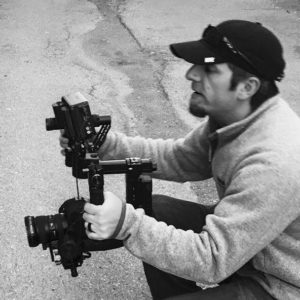I’m sure many of you reading this post today are sheltered at home peeking into the world through the window of an LED screen. What that window shows you may make you feel uncertain, maybe even afraid.
I think it’s ok to feel afraid. It’s ok to feel confused. It’s ok to feel angry, uncertain, frustrated or lost. All these emotions come with the fear of the unknown.
What matters isn’t ridding ourselves of the emotion of fear but learning how to process fear and how we shouldn’t put our trust in what fear tells us.
If you are a Christian, I’m sure you’ve heard a lot of talk about, “not walking in fear” and to trust God. I’ve heard this many times myself the last few weeks.
I believe it. But, simply reciting this saying doesn’t do much for someone who is afraid. It’s no different than trying to teach someone to waterski by simply instructing them to, “just stand up.”
There’s a lot more to waterskiing than “just standing up.”
There’s a lot more to processing through our fear in this coronavirus pandemic than just trusting God.
What’s needed is a discussion about what we do with our fear but more importantly what we do with our trust.
Here are 3 points I would start with.
Fear Is A Bad Fortune Teller
Fear is not the neighbor you want giving you directions to the nearest home improvement store. Fear, like “that” neighbor, is overly confident of its knowledge of the neighborhood.
Fear is a bad fortune teller.
It wants you to think it has already peered into the future and has insider knowledge of what’s going to happen. It wants you to react to what you can’t see, just like it does.
When you get bad directions you consult a map. As cheesy as this will sound, for the Christian, our map is understanding scripture in its context and finding the heart of our Father through it.
Fear Is About Trust
When you hear, “don’t walk in fear just trust God” that is actually true but that phrase has become so commonplace in the Christian community that we don’t talk about the struggle that comes with trusting.
This phrase, unfortunately, leaves people feeling like they have failed God if they feel afraid. Many Christians, thinking they are acting in faith, ignore their fear and cover it with a mask of strength. I’ve done it. But all this does is allow fear to live on behind the curtain of that mask. Unchallenged and uncontrolled.
Fear grows best in the dark.
In Psalm 56 David writes,
When I am afraid, I will put my trust in you.
Putting our trust in God doesn’t mean we no longer feel the emotion of fear. It just means fear doesn’t get to drive the car.
We are human.
Humans feel fear.
God knows this.
It doesn’t make Him angry or disappointed that you aren’t “stronger.”
You can feel afraid and still trust God.
David did. You can too.
Putting our trust in God is staring our fears right in the eyes, feeling what we feel from them, then choosing to trust God and His character regardless of what the fear says.
Side Note: Trusting God does not mean ignoring change that will protect yourself and others.
Fear Wants Us To Forget God
Even more, it’s about remembering who God is.
If we never feel fear, we will never feel what it’s like to overcome it.
It’s too easy to forget God when we hide our fear behind a mask we built to make us look strong. Given enough time that mask might convince us we are as strong, or weak, as the fear would like us to believe.
When we remember God, we remember His character. He feels our fear and our loss. He feels our uncertainty and confusion. He cares for us.
That doesn’t mean all this magically goes away. This world is still broken but we are not of this world any longer.
What it does mean, is we are known.
Exactly where we are. In the middle of our fear or in the middle of us trying to mask it, in the middle of us overcoming our fear, and in the middle of us rebuilding in spite of it.
In all of this, we are known. loved. accepted.
Fear might tell us tomorrow will be worse than today but hope tells us that tomorrows aren’t made to remain that way.



